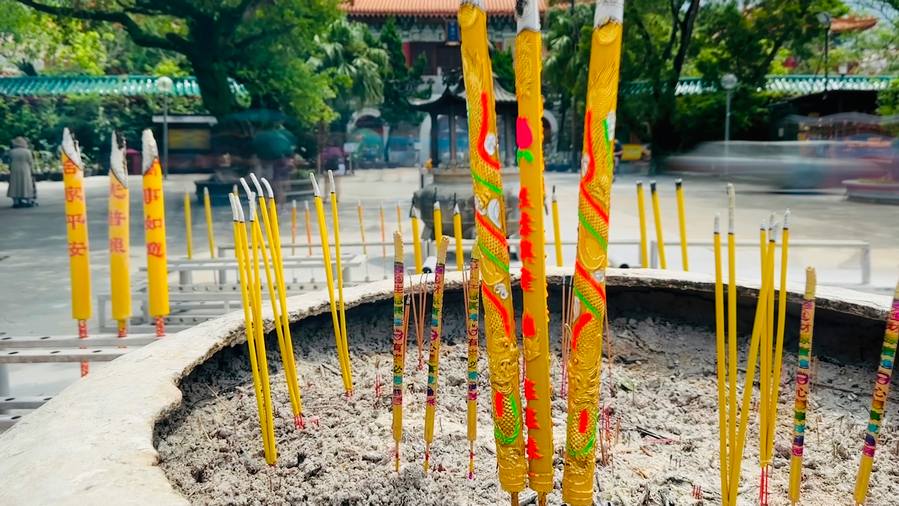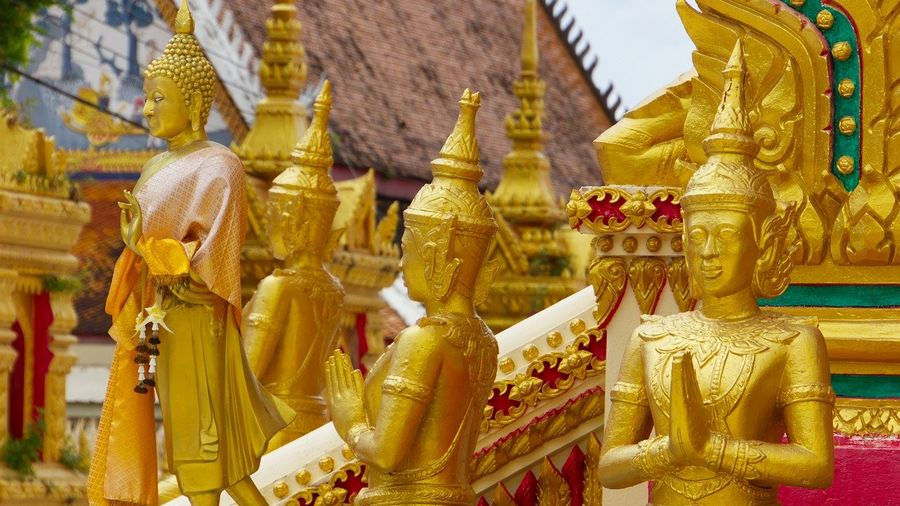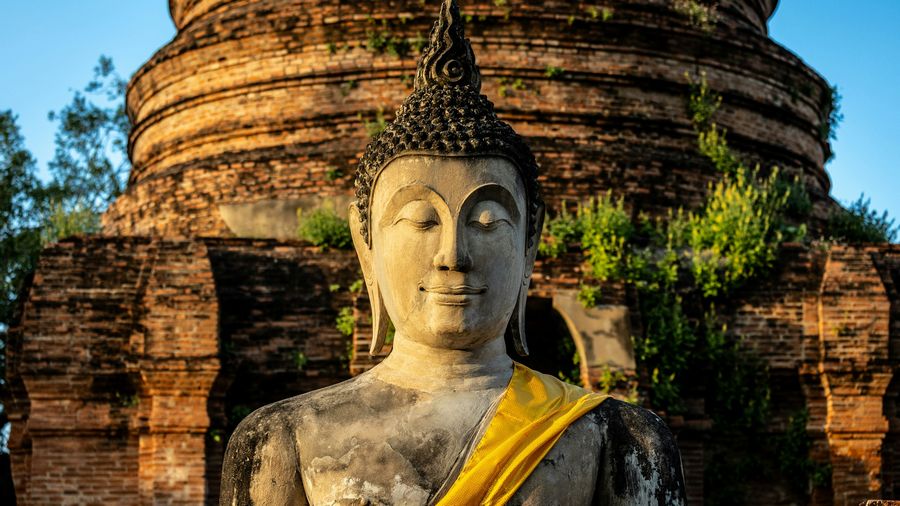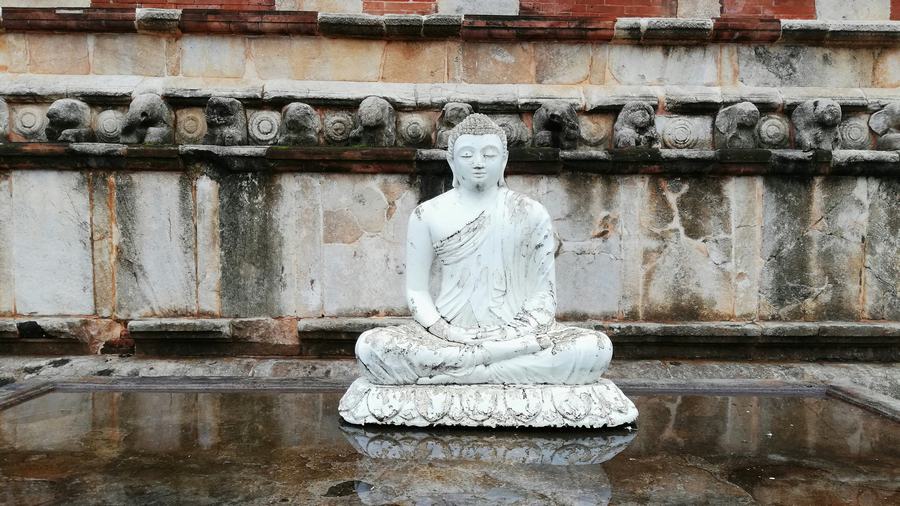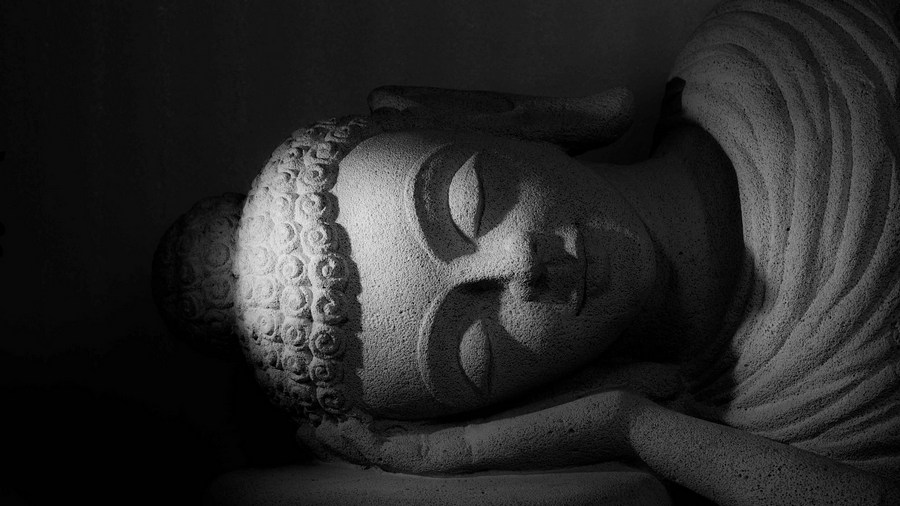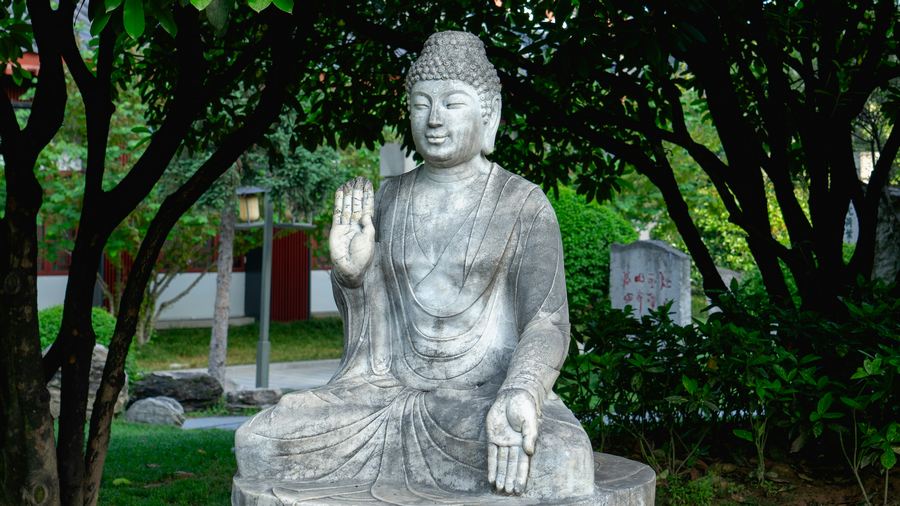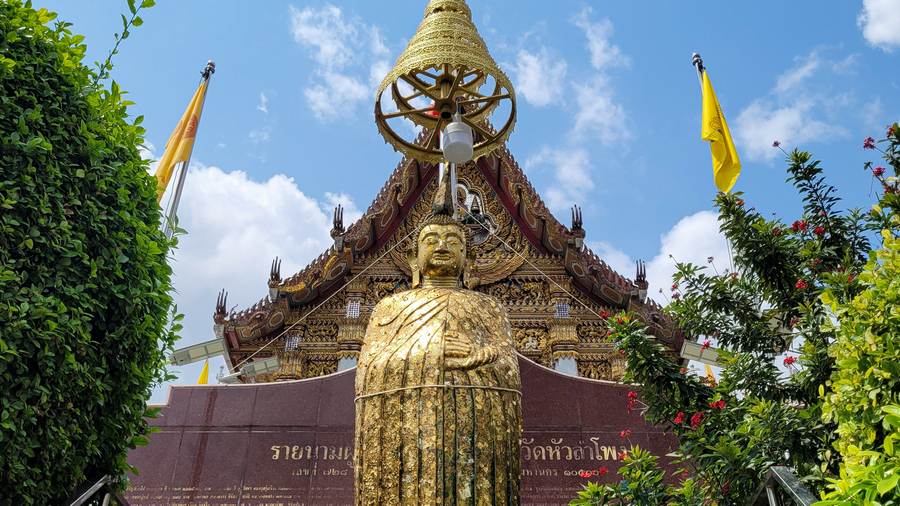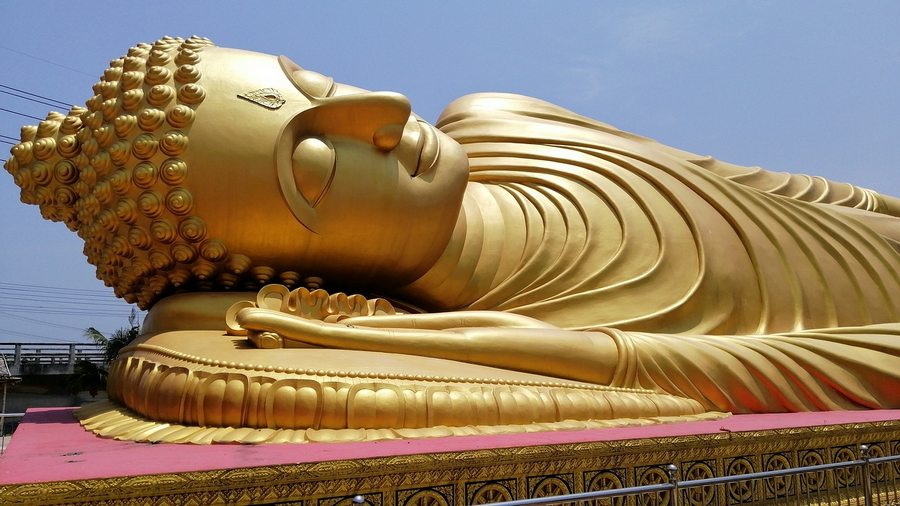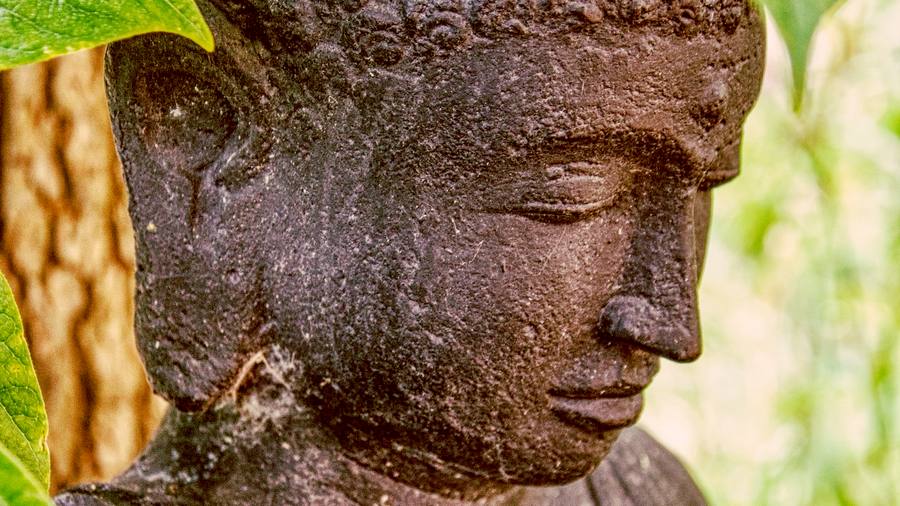[Note: Today’s selection is very long, but it contains a radical teaching: that what matters most is the actions that we do, not the position we are born into.]
So I have heard. At one time the Buddha was staying in a forest near Icchānaṅgala.
Now at that time several very well-known well-to-do brahmins were residing in Icchānaṅgala. They included the brahmins Caṅkī, Tārukkha, Pokkharasādi, Jānussoṇi, Todeyya, and others.
Then as the brahmin students Vāseṭṭha and Bhāradvāja were going for a walk they began to discuss the question: “How do you become a brahmin?”
Bhāradvāja said this: “When you’re well born on both your mother’s and father’s side, of pure descent, with irrefutable and impeccable genealogy back to the seventh paternal generation— then you’re a brahmin.”
Vāseṭṭha said this: “When you’re ethical and accomplished in doing your duties— then you’re a brahmin.”
But neither was able to persuade the other.
So Vāseṭṭha said to Bhāradvāja, “Mister Bhāradvāja, the ascetic Gotama—a Sakyan, gone forth from a Sakyan family—is staying in a forest near Icchānaṅgala. He has this good reputation: ‘That Blessed One is perfected, a fully awakened Buddha, accomplished in knowledge and conduct, holy, knower of the world, supreme guide for those who wish to train, teacher of gods and humans, awakened, blessed.’ Come, let’s go to see him and ask him about this matter. As he answers, so we’ll remember it.”
“Yes, sir,” replied Bhāradvāja.
So they went to the Buddha and exchanged greetings with him. When the greetings and polite conversation were over, they sat down to one side, and Vāseṭṭha addressed the Buddha in verse:
“We’re both authorized masters
of the three Vedas.
I’m a student of Pokkharasādi,
and he of Tārukkha.
We’re fully qualified
in all the Vedic experts teach.
As philologists and grammarians,
we match our teachers in recitation.
We have a dispute
regarding genealogy.
For Bhāradvāja says that
one is a brahmin due to birth,
but I declare it’s because of one’s deeds.
Oh Clear-eyed One, know this as our debate.
Since neither of us was able
to convince the other,
we’ve come to ask you, sir,
renowned as the awakened one.
As people honor with joined palms
the moon on the cusp of waxing,
bowing, they revere
Gotama in the world.
We ask this of Gotama,
the Eye arisen in the world:
is one a brahmin due to birth,
or else because of deeds?
We don’t know, please tell us,
so we can recognize a brahmin.”
“I shall explain to you,” said the Buddha,
“accurately and in sequence,
the taxonomy of living creatures,
for species are indeed diverse.
Know the grass and trees,
though they lack self-awareness.
They’re defined by birth,
for species are indeed diverse.
Next there are bugs and moths,
and so on, to ants and termites.
They’re defined by birth,
for species are indeed diverse.
Know the quadrupeds, too,
both small and large.
They’re defined by birth,
for species are indeed diverse.
Know, too, the long-backed snakes,
crawling on their bellies.
They’re defined by birth,
for species are indeed diverse.
Next know the fish,
whose habitat is the water.
They’re defined by birth,
for species are indeed diverse.
Next know the birds,
winged chariots in flight.
They’re defined by birth,
for species are indeed diverse.
While the differences between these species
are defined by birth,
the differences between humans
are not defined by birth.
Not by hair nor by head,
not by ear nor by eye,
not by mouth nor by nose,
not by lips nor by eyebrow,
not by shoulder nor by neck,
not by belly nor by back,
not by buttocks nor by breast,
not by groin nor by genitals,
not by hands nor by feet,
not by fingers nor by nails,
not by knees nor by thighs,
not by color nor by voice:
none of these are defined by birth
as it is for other species.
In individual human bodies
you can’t find such distinctions.
The distinctions among humans
are spoken of by convention.
Anyone among humans
who lives off keeping cattle:
know them, Vāseṭṭha,
as a farmer, not a brahmin.
Anyone among humans
who lives off various professions:
know them, Vāseṭṭha,
as a professional, not a brahmin.
Anyone among humans
who lives off trade:
know them, Vāseṭṭha,
as a trader, not a brahmin.
Anyone among humans
who lives off serving others:
know them, Vāseṭṭha,
as a servant, not a brahmin.
Anyone among humans
who lives off stealing:
know them, Vāseṭṭha,
as a bandit, not a brahmin.
Anyone among humans
who lives off archery:
know them, Vāseṭṭha,
as a soldier, not a brahmin.
Anyone among humans
who lives off priesthood:
know them, Vāseṭṭha,
as a sacrificer, not a brahmin.
Anyone among humans
who taxes village and nation,
know them, Vāseṭṭha,
as a ruler, not a brahmin.
I don’t call someone a brahmin
after the mother’s womb they’re born from.
If they still have attachments,
they’re just someone who says ‘mister’.
Having nothing, taking nothing:
that’s who I call a brahmin.
Having cut off all fetters
they have no anxiety;
they’ve slipped their chains and are detached:
that’s who I call a brahmin.
They’ve cut the strap and harness,
the reins and bridle too;
with cross-bar lifted, they’re awakened:
that’s who I call a brahmin.
Abuse, killing, caging:
they endure these without anger.
Patience is their powerful army:
that’s who I call a brahmin.
Not irritable or stuck up,
dutiful in precepts and observances,
tamed, bearing their final body:
that’s who I call a brahmin.
Like rain off a lotus leaf,
like a mustard seed off the point of a pin,
sensual pleasures slip off them:
that’s who I call a brahmin.
They understand for themselves
the end of suffering in this life;
with burden put down, detached:
that’s who I call a brahmin.
Deep in wisdom, intelligent,
expert in what is the pathand what is not the path;
arrived at the highest goal:
that’s who I call a brahmin.
mixing with neither
householders nor the homeless;
a migrant with no shelter, few in wishes:
that’s who I call a brahmin.
They’ve laid aside violence
against creatures firm and frail;
not killing or making others kill:
that’s who I call a brahmin.
Not fighting among those who fight,
extinguished among those who are armed,
not taking among those who take:
that’s who I call a brahmin.
They’ve discarded greed and hate,
along with conceit and contempt,
like a mustard seed off the point of a pin:
that’s who I call a brahmin.
The words they utter
are sweet, informative, and true,
and don’t offend anyone:
that’s who I call a brahmin.
They don’t steal anything in the world,
long or short,
fine or coarse, beautiful or ugly:
that’s who I call a brahmin.
They have no hope
for this world or the next;
with no need for hope, detached:
that’s who I call a brahmin.
They have no clinging,
knowledge has freed them of indecision,
they’ve arrived at the culmination of freedom from death:
that’s who I call a brahmin.
They’ve escaped the snare
of both good and bad deeds;
sorrowless, stainless, pure:
that’s who I call a brahmin.
Pure as the spotless moon,
clear and undisturbed,
they’ve ended desire to be reborn:
that’s who I call a brahmin.
They’ve got past this grueling swamp
of delusion, transmigration.
Meditating in stillness, free of indecision,
they have crossed over to the far shore.
They’re extinguished by not grasping:
that’s who I call a brahmin.
They’ve given up sensual stimulations,
and have gone forth from lay life;
they’ve ended rebirth in the sensual realm:
that’s who I call a brahmin.
They’ve given up craving,
and have gone forth from lay life;
they’ve ended craving to be reborn:
that’s who I call a brahmin.
They’ve thrown off the human yoke,
and slipped out of the heavenly yoke;
unyoked from all yokes:
that’s who I call a brahmin.
Giving up discontent and desire,
they’re cooled and free of attachments;
a hero, master of the whole world:
that’s who I call a brahmin.
They know the passing away
and rebirth of all beings;
unattached, holy, awakened:
that’s who I call a brahmin.
Gods, centaurs, and humans
don’t know their destiny;
the perfected ones with defilements ended:
that’s who I call a brahmin.
They have nothing before or after,
or even in between.
Having nothing, taking nothing:
that’s who I call a brahmin.
Leader of the herd, excellent hero,
great seer and victor;
unstirred, washed, awakened:
that’s who I call a brahmin.
They know their past lives,
and see heaven and places of loss,
and have attained the end of rebirth:
that’s who I call a brahmin.
For name and clan are formulated
as mere convention in the world.
Produced by mutual agreement,
they’re formulated for each individual.
For a long time this misconception
has prejudiced those who don’t understand.
Ignorant, they declare
that one is a brahmin by birth.
You’re not a brahmin by birth,
nor by birth a non-brahmin.
You’re a brahmin by your deeds,
and by deeds a non-brahmin.
You’re a farmer by your deeds,
by deeds you’re a professional;
you’re a trader by your deeds,
by deeds are you a servant;
you’re a bandit by your deeds,
by deeds you’re a soldier;
you’re a sacrificer by your deeds,
by deeds you’re a ruler.
In this way the astute regard deeds
in accord with truth.
Seeing dependent origination,
they’re expert in deeds and their results.
Deeds make the world go on,
deeds make people go on;
sentient beings are bound by deeds,
like a moving chariot’s linchpin.
By fervor and spiritual practice,
by restraint and by self-control:
that’s how to become a brahmin,
this is the supreme brahmin.
Accomplished in the three knowledges,
peaceful, with rebirth ended,
know them, Vāseṭṭha,
as Brahmā and Sakka to the wise.”
When he had spoken, Vāseṭṭha and Bhāradvāja said to him, “Excellent, Mister Gotama! Excellent! As if he were righting the overturned, or revealing the hidden, or pointing out the path to the lost, or lighting a lamp in the dark so people with clear eyes can see what’s there, Mister Gotama has made the teaching clear in many ways. We go for refuge to Mister Gotama, to the teaching, and to the mendicant Saṅgha. From this day forth, may Mister Gotama remember us as lay followers who have gone for refuge for life.”
Read this translation of Majjhima Nikāya 98 Vāseṭṭhasutta: With Vāseṭṭha by Bhikkhu Sujato on SuttaCentral.net. Or read a different translation onDhammaTalks.org or Ancient-Buddhist-Texts.net. Or listen on PaliAudio.com or SC-Voice.net. Or explore the Pali on DigitalPaliReader.online.
Or read a translation in বাংলা, Deutsch, Español, हिन्दी, Bahasa Indonesia, Italiano, 日本語, မြန်မာဘာသာ, Norsk, Português, Русский, සිංහල, Slovenščina, Srpski, ไทย, Tiếng Việt, or 汉语. Learn how to find your language.

 Copyright: Creative Commons Zero (CC0) To the extent possible under law, Bhikkhu Sujato has waived all copyright and related or neighboring rights to his own translations on
Copyright: Creative Commons Zero (CC0) To the extent possible under law, Bhikkhu Sujato has waived all copyright and related or neighboring rights to his own translations on 














